TIPS FOR A PRODUCTIVE STUDY DAY:
TIPS FOR A PRODUCTIVE STUDY DAY:
Find a good place to study: somewhere light, quiet, busy, spacious, cosy, alone, with friends …whatever works for you. Take time to learn what kind of environment you work best in. Try and put your technology aside. If you’re always on your phone, turn it off and put it in your bag, if you’re finding the internet distracting, download “Pomodoro” (an app which blocks sites like facebook, twitter etc for a set period of time).
Figure out when you’re most productive: if it’s in the morning, get up earlier and spend a few hours solidly working, if it’s in evening, make sure you set some time aside to focus. For me, I work best between 8am-1pm, then I normally take a few hours off, and if I have a lot to do I’ll head back to the library between 4-8pm. Finding the time when your mind is at its most alert can have a huge impact on your studies and will mean you avoid spending hours being unproductive.
Decide what you’re going to do before you start: if you have lots of different things to do, decide which one you’re going to focus on before you sit down. This will prevent you from panicking and trying to do everything at once, which will only make you feel stressed and unproductive.
Set realistic goals: don’t try and be overambitious with what you want to achieve that day. If you set yourself unrealistic goals, you’ll only finish the day feeling like you’ve failed. Set yourself a number of small, manageable tasks to work through, then if you are able to do more it will make you feel a lot more productive.
Start with the hard stuff: tackle the big problems first. Things will feel easier in the first few hours of studying when your mind is most awake, so it’s important to start with the trickier things first. This way, when you hit a wall you can work through a few of the smaller, easier tasks and still feel like you’re getting stuff done.
Remember to keep refuelling: get plenty of sleep, drink lots of water, bring snacks, treat yourself to a nice lunch, take frequent breaks, walk around and go outside if you can. If you are planning to spend a long time studying it’s important to keep your energy levels up.
Plan something for the end of the day: even if it’s just going to the gym, making a nice meal, or going for a drink with your friends, give yourself something to look forward to at the end of a long day studying.
Remember why you’re doing this: is it to get into university or just because you’re passionate about your subject? By linking something difficult to something you care about, it makes it easier to stay focused and keep going.
Not every day can be productive: if things aren’t happening that day keep trying for a while and if you’re still feeling stuck do something else. There’s no point sitting at your desk for hours when you’re just not able to get things done. Go and do something you enjoy and try and get out of the house, and just try again tomorrow. A few days off here and there is not going to ruin your degree, and taking time to do something for yourself is likely to make you more productive in the long run.
More Posts from Isang--mag-aaral and Others

Rare study tips just in time for the new year Credit: Tips by @studybllog, poster by me
Developing Self Discipline
Requested by flowering-veins. Thank you!
Self-discipline can be considered a type of selective training, creating new habits of thought, action, and speech toward improving yourself and reaching goals. Self-discipline can also be task oriented and selective. View self-discipline as positive effort, rather than one of denial.
Schedule a small task for a given time of the day; Practice deliberate delaying.
Schedule a particular task in the morning and once in the evening.
The task should not take more than 15 minutes.
Wait for the exact scheduled time. When the schedule time is due, start the task.
Stick to the schedule for at least two months.
Advantage: Scheduling helps you focus on your priorities. By focusing on starting tasks rather than completing them, you can avoid procrastination.
Schedule a task and hold to its time; Avoid acting on impulse.
Track your progress; At the end of the allotted time, keep a record of accomplishment that builds over time.
If you begin to have surplus time, fill it with small tasks, make notes to yourself, plan other tasks, etc.
Advantage: Building a record will help you track how much time tasks take.
If you begin to have surplus time, fill it with small tasks, make notes to yourself, plan other tasks, etc.
Harness the power of routine.
Instead of devoting a lot of hours one day, and none the other and then a few on an another day and so on, allocate a specific time period each day of the week for that task.
Hold firm.
Don’t set a goal other than time allocation, simply set the habit of routine.
Apply this technique to your homework or your projects, you will be on your way to getting things done
Advantage: You are working on tasks in small increments, not all at once. You first develop a habit, then the habit does the job for you.
Use self discipline to explore time management
Time management can become an overwhelming task. When you do not have control over your own self, how can you control time? Begin with task-oriented self-discipline and build from there.
Advantage: As you control tasks, you build self-discipline. As you build self-discipline, you build time management. As you build time management, you build self-confidence.
Maintain a self-discipline log book.
Record the start and end times of the tasks.
Review for feedback on your progress
Advantage: This log book can be a valuable tool to get a better picture over your activities in order to prioritize activities, and realize what is important and not important on how you spend your time.
Schedule your work day and studies.
When you first begin your work day, or going to work take a few minutes and write down on a piece of paper the tasks that you want to accomplish for that day.
Prioritize the list.
Immediately start working on the most important one.
Try it for a few days to see if the habit works for you.
Habits form over time: how much time depends on you and the habit.
Advantage: When you have a clear idea as to what you want to achieve for the day at its start, the chances are very high that you will be able to proactively accomplish the tasks. Writing or sketching out the day helps.
Discouragement:
Do not be intimidated; do not be put off by the challenge
If you slip, remember this is natural
Take a break and then refresh the challenge
Tricks:
Associate a new habit with an old one: If you drink coffee, make that first cup the time to write out and prioritize your tasks.
Advantage: Association facilitates neural connections!
Mark your progress:
On a calendar in your bathroom, on a spreadsheet at your computer, on your breakfast table: Check off days you successfully follow up. If you break the routine, start over!
Advantage: Visualizing is a ready reinforcement of progress
Role models:
Observe the people in your life and see to what extent self discipline and habits help them accomplish goals. Ask them for advice on what works, what does not.


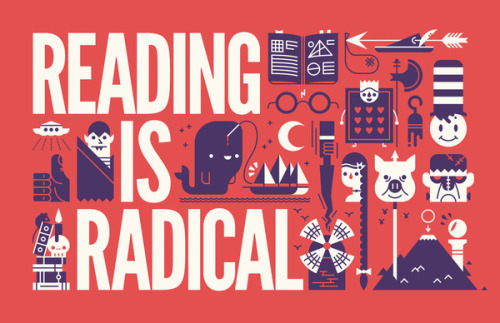




Art prints by KOMBOH. Collect them all!
IDK who needs to hear this but if there’s something in your life that makes you feel better, but you never stick to it,
it’s still actually perfectly fine to do it
and you shouldn’t stop yourself from starting just because it won’t be a permanent change.
Like if starting a new daily planner gives you an amazing afternoon of planning and four days where you feel in charge of your life,
why not do it?
It doesn’t matter that it won’t be a permanent change - 4 good days is still worth it.
If you ever catch yourself thinking, “I wish I could pray/stretch/prep/plan/do the thing, but I always get started on that and it never lasts more than a couple of days,”
what this really means is, “hey, I can feel better for a couple of days.”
if this post is making you think of things in your own life that you wish you could stick to because of how good they make you feel,
just be aware:
you’re not thinking of a list of ways you’ve failed to commit
you’re thinking of a list of things that make you happy, and you should give yourself permission to start doing them as often as you want to




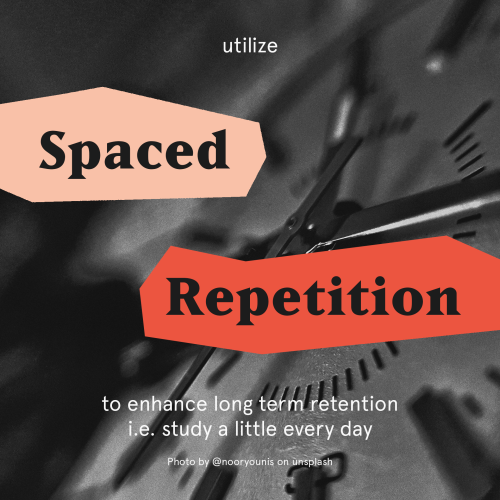

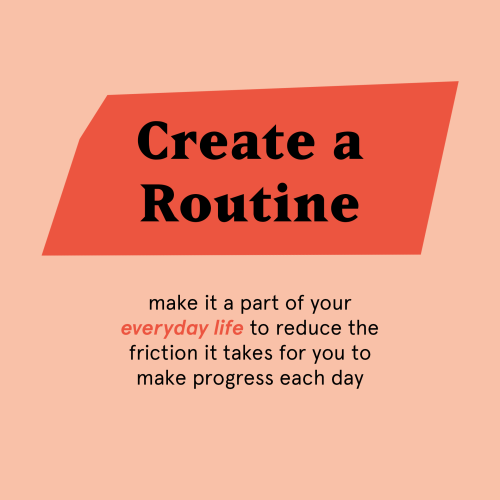



Quick Tips for Learning Languages on Your Own
Here are some mindsets and techniques that helped me study Italian on my own after classes ended. Hope this helps :)
Also, I’m trying out a new format for shorter posts–let me know what you think!
Text format below.
Keep reading



truly an old-book-enthusiast haven.
i remember going to this mall once, then having severe anxiety and guilt for not using that time on studying or requirements instead. thankfully, i saw this shop, and although it did not fully relieve me of my guilt— it made me feel like i would also regret it if i wasn’t with my family to see this.
give yourself a break sometimes! ✨
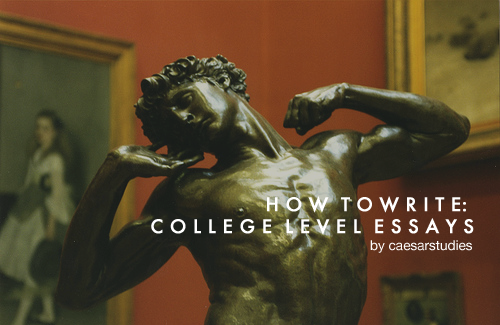
writing an essay in college is very different from writing an essay in high school. personally, i write more research/history papers than literary essays (the liberal arts life and curse), so this is going to be a post on how a general research-y essay that has a thesis and arguments.
intro
don’t open with a quote and don’t be overly broad.
avoid generalizations
your intro should address the topic of your essay (ex. the significance of gardens in renaissance society), and then narrow down to what you want to talk about in regards to your topic (ex. the political influence of the Medici gardens during the renaissance)
thesis! it should include the argument you want to make about the narrowed down topic, and three (or however many your class requires) reasons to support it. I like to think of it as W = X + Y + Z.
your thesis explains who, what and why in a concise manner.
body
topic sentences should not be a word for word copy of your thesis.
the order of arguments in your thesis is the order of your paragraphs
depending on the length of your essay, there should be at least two justifications to your argument.
so, just as the intro has a formula, X = A + B, and so forth.
A and B should be backed up with some sources/quotes. don’t forget that if you are quoting from class notes to put either the prof’s last name, or (class notes)
be sure to have clear and concise arguments, don’t be flowery
USE WORDS THAT ARE ACCURATE. thesaurus is great but if you use a word that sounds cool but doesn’t capture the meaning you want to convey then don’t use it, because it may just change the meaning of your argument
quote whatever isn’t yours. it is completely fine if 90% of your sentences are quotes. its weird to get used to, but don’t worry about it.
conclusion
the worst part in my opinion.
synthesize don’t summarize. show how your arguments relate back to the thesis.
try not to copy paste your thesis into the conclusion, word it so that the readers understands that through XYZ, you were able to conclude and support argument W (referring back to the thesis formula)
do not add any new information, do not add quotes.
your final sentence should tie up the essay in a pretty bow, but try to avoid clichés
protips
when writing the body paragraphs, your ‘weakest’ paragraph should be in the middle, strongest as your last, and the second best as your first.
if you’re stumped on the intro, skip it. write out the body first, then the intro and you’ll be able to concisely word your thesis
think of your essay as an infomercial. your intro is the loud and clear HERES MY PRODUCT, the body is blasting information on why the product is so cool, and the conclusion is the final push for the viewer to buy that product. make your teacher want to agree with your thesis!
use a mix of paraphrase and quotes!
don’t forget your works cited lmao (the MLA Handbook is a gr8 tool, also OWL Purdue)
prime time for essay writing is in the morning or at night, but make sure you edit it meticulously
EDIT ON PAPER NOT ON YOUR SCREEN
stay humble, study hard
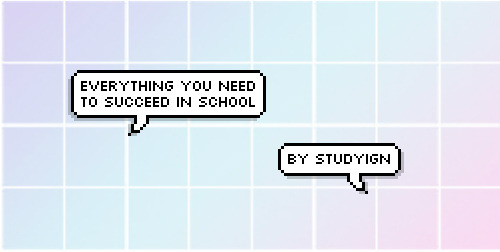
i get a LOT of questions about time management and getting better grades so i decided to put a boat load of advice and links in one place :]
time management methods
start a bullet journal ( +mine / +insp )
the 5 day study plan - it works!
schedule blocks of study time
use excel to schedule study
how to schedule study
the sticky note method
an app that organizes time for u
15 ways to beat procrastination
balancing multiple AP classes
decision making and time management
use the pomodoro technique
the task box prioritizing method
how to cram a lot of information in
get organized!!!!!
make and use a syllabible
great organization advice
organize ur study space
more tips on study spaces
basic organization tips
cute infographic
printable planner sheets
simple 2 pocket folder method
study methods!!!
watch youtube crashcourses
best study tips ever tbh
tips on memorizing effectively
add color for visual interest
make cause and effect diagrams
making good flashcards
create summary foldables
margin note taking
the 2 notebook method
for when ur not motivated
reading long textbook passages
studying for a test ooh
basic note taking
+note taking tips
note taking in microsoft word
bs study guide
how to plan out an essay
more essay planning
annotating literature for english
how to make concept maps
really interesting way of studying
shit load of study methods
web resources!!!!
search engine that plants trees!
to do list web program
bedtime calculator [avoid grogginess]
the dictionaries u need omg
how to pull an all nighter
advice on how to properly use google
final grade calculator
>100 places to download literature
cute af school supply list
alternatives to overpriced textbooks
rly this is better than google
best writing checker ever its my fave
free academic journals for research
AP cramming packets
every website to make a bibliography
online used book store
mind map making software from tufts
khanacademy aka bless this site
stop procrastinating websites
free powerpoint
awesome synonym finder
apps u need to download!!!
google chrome app i love it
taking digital notes
like 14 useful school apps
attn: all writers get this
super cute time manager
>9 different studying apps
post it note app
study + give water to needy!!
relaxation n meditation help
sat help!!!!!
all kinds of essential vocab [2k+]
big collection of links
v solid page with lots of references
rly good advice imo
how to do well on the sat
general big exam advices
stress reliefs!!!!
rly good study snacks
badass instrumental playlist!
finish ur essay songs!
+all my fave study playlists!
treat urself on a low budget
read some rad articles
teach urself computer science
take the 10 day study challenge
rip some crap online
good things to do in study breaks
+100 more things in study breaks
if u tired and uninspired
avoid student burnout
watch a ton of broadway musicals
nice things for urself
anxiety relieving background sound
+ masterposts!!!
back to school advice
productive summers
note taking methods
starting a study blog
time managements
succeed @ school
ap world history
web resources
ap psychology
bullet journals
school advice
happy things
ace ur exams
stress reliefs
annotations
essay writin
printables
sat help
+more
i hope some of this was helpful ~ feel free to add resources! message me if u have any questions! i also have a youtube channel with a whole bunch of study resources!!!! ~ xoxo sareena

feeling beings full of fleeting feelings
a lengthy intro post ><
I'm currently going through my archive and I just realized how I've never actually did an intro post? (Maybe I did but I can't see it so it doesn't exist anymore <3)
Anyways, hello! I'm Sunny, a college student from the ph! Quick facts:
I was born in 2001
I'm a Libra sun and my MBTI is INFP/INTP
I'm into various interests (films, reading, K-pop, recently fs and whatever my mind decides interesting)
I'm a heavy procrastinator ._.
I've been in the studyblr community since 2017 but I didn't really post a lot of stuff because I felt like it was "too productive" for me. I kept on seeing posts with pretty journals, tons of pens, aesthetic desk set-ups, and I kept telling myself that I should be at that level as well. If I don't have nice pens, nice desk set-ups, and nice journals then I'm not a studyblr.
These past years in the pandemic literally shattered who I am as a student, and I just felt so lost. I've been in a tough place and I really cannot care less about my academics. I flunked a lot of classes, argued a lot with my mom, and was just all around negative towards my studies. I'm not proud of it, but I know that I did what I could've.
I'm trying to be better now, though! Hence, why I'm here! I realized that I don't really have to be a certain 'way' to use a studyblr. I should be fine-tuning this platform for me, use it as what I need it and not the other way around. Sure, studyblrs can become an inspiration, but I now know that I don't have to be the same as them.
I'm still trying to rebuild myself as a student, hopefully this time with a stronger foundation! Please, feel free to hit me up! :D I'd love to have friends who can motivate me and I can motivate as well T__T I'm also in studytwt!
study/blrs that I've followed through out the years: emmastudies / tbhstudying / noodledesk / eintsein / studynostalgic and many more!!
-
 serbutgay liked this · 11 months ago
serbutgay liked this · 11 months ago -
 suniah liked this · 3 years ago
suniah liked this · 3 years ago -
 thisisalokisafeplace liked this · 4 years ago
thisisalokisafeplace liked this · 4 years ago -
 imawalkingcliche liked this · 4 years ago
imawalkingcliche liked this · 4 years ago -
 shanghai-studies liked this · 4 years ago
shanghai-studies liked this · 4 years ago -
 the-sunrise-shack reblogged this · 4 years ago
the-sunrise-shack reblogged this · 4 years ago -
 sothereisnolieinherfire reblogged this · 4 years ago
sothereisnolieinherfire reblogged this · 4 years ago -
 xmissamax reblogged this · 4 years ago
xmissamax reblogged this · 4 years ago -
 sorrowfell reblogged this · 4 years ago
sorrowfell reblogged this · 4 years ago -
 skyplant-studies liked this · 4 years ago
skyplant-studies liked this · 4 years ago -
 mirai227 liked this · 4 years ago
mirai227 liked this · 4 years ago -
 random-n-happy liked this · 5 years ago
random-n-happy liked this · 5 years ago -
 hazelgracelancaster2002 liked this · 5 years ago
hazelgracelancaster2002 liked this · 5 years ago -
 studyformula reblogged this · 5 years ago
studyformula reblogged this · 5 years ago -
 amiiamme liked this · 5 years ago
amiiamme liked this · 5 years ago -
 h4msss liked this · 5 years ago
h4msss liked this · 5 years ago -
 chariphrasis reblogged this · 5 years ago
chariphrasis reblogged this · 5 years ago -
 unblockingthatwritersblock reblogged this · 5 years ago
unblockingthatwritersblock reblogged this · 5 years ago -
 chariphrasis liked this · 5 years ago
chariphrasis liked this · 5 years ago -
 theantisocialite reblogged this · 5 years ago
theantisocialite reblogged this · 5 years ago -
 theantisocialite liked this · 5 years ago
theantisocialite liked this · 5 years ago -
 pompous-bisexual liked this · 5 years ago
pompous-bisexual liked this · 5 years ago -
 glennx liked this · 5 years ago
glennx liked this · 5 years ago -
 sapphicdesigns liked this · 5 years ago
sapphicdesigns liked this · 5 years ago -
 bluebellbookish liked this · 5 years ago
bluebellbookish liked this · 5 years ago -
 alllstrangeandwonderful liked this · 5 years ago
alllstrangeandwonderful liked this · 5 years ago -
 itjustfeels reblogged this · 5 years ago
itjustfeels reblogged this · 5 years ago -
 just-a-zuki reblogged this · 5 years ago
just-a-zuki reblogged this · 5 years ago -
 someone-beat-me-to-this-username liked this · 5 years ago
someone-beat-me-to-this-username liked this · 5 years ago -
 revirag reblogged this · 5 years ago
revirag reblogged this · 5 years ago -
 revirag liked this · 5 years ago
revirag liked this · 5 years ago -
 malwako2 liked this · 5 years ago
malwako2 liked this · 5 years ago -
 jaywrites liked this · 5 years ago
jaywrites liked this · 5 years ago -
 roguenightpanda liked this · 5 years ago
roguenightpanda liked this · 5 years ago -
 summer-knight liked this · 5 years ago
summer-knight liked this · 5 years ago -
 merrycri-sis liked this · 5 years ago
merrycri-sis liked this · 5 years ago -
 lavenderandlilacs liked this · 5 years ago
lavenderandlilacs liked this · 5 years ago
